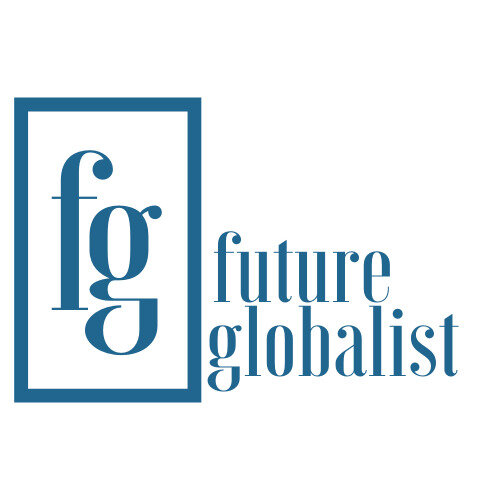Refugee Crisis in Greece Nowadays
Greece has often been faced with refugee and immigration issues. However, the recent refugee crisis has led to a huge migrant/refugee wave to the country itself, especially in two consecutive years, 2015 and 2016. Thus, Greece has turned into an entrance immigrant country and nowadays consists a dominant transit country to other E.U. members or a permanent settlement.
This summer and beyond, there are many new arrivals so we are practically at the same pace as in 2016. For example only in October, came in Greece about 7,000 immigrants and refugees (1). A basic problem is that the conditions at the hot spots, on the islands, are not good. So arises the question if they will be properly prepared for this winter. In general the situation is uncertain and the refugees feel that they are in a deadlock. The most of them don´t want to stay in Greece. But also the reactions of residents in different parts of the country are intensifying.
According to the UNHCR there are 96,500 immigrants and refugees in Greece. Specifically 30.700 in the islands and 65.800 in the mainland (2). Also according to the DW, today in Greece are coming mainly young men from Afghanistan, Iraq, Syria and the North Africa.
The situation on the Aegean islands is tragic. According to Greek newspapers a total of 35,344 are trapped refugees and immigrants. In Lesvos there are 16,780 immigrants and refugees. Of them, 14,663 live in and around the Moria Hotspot, which can accommodate approximately 2,840 people. In Chios there are 5,140 immigrants and refugees. Of them, the 4,864 live in the Hotspot of VIAL, which can accommodate approximately 1,014 people. In Samos there are 6,404 immigrants and refugees. Of them the 6,173 live at the local Hotspot, which can accommodate 648 people. In Leros there are 2,433 immigrants and refugees. Here 2,184 of them live in the Hotspot, which can accommodate 860 people. In Kos there 4,308 immigrants and refugees. Of them, 3,813 live in the Hotspot, which can accommodate only 816 people (1-4).
As everyone can understand, both the physical and mental breakdown of these people is getting worse every day. The reason is the miserable living conditions, the lack of hygiene and the conditions as set out in the EU-Turkey declaration. More and more of them are in custody and in a legal vacuum.
According to organizations, the last semester (1):
In Lesbos 20% of mental health patients attempted suicide
The 50% of them are victims of torture and ill-treatment.
The 30% of patients with mental health problems are victims of sexual abuse
More than 1/4 of children with such problems are hurting themselves. Some of them tried to commit suicide, between them and children under the age of 10. There are 115 minors in Lesvos with cancer, diabetes and cardiovascular problems and so far cannot move in the mainland.
The 50% of the refugees in the islands are minors.
The 1/3 of the children in Lesvos live in camps and places made of plastic.
There is one toilet for 300 children in Samos, one toilet for 200 people in Lesvos, while there should be 20 people per toilet. So they get sick and develop complex medical problems without adequate medical care, while there are many problems and impediments to referring them to provide appropriate treatment.
More and more people are trapped in the islands for a longer period. A large number of immigrants and refugees who have got ill in Lesvos more than six months in the island and some more than half-year. As far as the vulnerability assessment is concerned, in 2018 over 78% of the mentally ill in Lesvos did not find out that they were vulnerable.
According to complaints in the hotspot of Leros, all homeless children and some of the children who are in “houses” are full of flea bites. Many children develop abdominal algae and diarrhea due to the food they provide in the hotspots. Some children have asthma as they live close to the sea. Also there are children with nightmares and night sweats, and there is a number of mothers who while they have anemia they still breastfeed their babies.
Here is a recent example of the unacceptable situation: The organization “Doctors without Borders” announced in 16th of November (2019), via Twitter, the death of a nine months baby, after dehydration in the refugee and migrant hotspot in Moria. They are referring to immediate action by both Greece and the European Union (5).
This situation is being exploited by a variety of marginalized nationalist and far-right groups, which have, however, overestimated their influence and acceptance by the media. These groups call and conduct protests of hate, against the migrants and the refugees, even outside of the camps, offending the religious and cultural moral of the people. People of Greece must massively denounce and condemn the propaganda and the actions by racist and nationalist groups. We have to strengthen the solidarity between people of Greece and the refugees and the migrants.
After all, the Greeks throughout their history have been themselves refugees and migrants. Even today many young people leave Greece for a better future elsewhere in Europe. Whether the problem is war or extreme poverty and unemployment, the cause around the world is common, is the barbaric exploitation system that we live. Our duty is to fight against it and for a better world, with peace and solidarity!
References:
1. K. (2019, 10 November). The consequences of the policy of trapping and repression are tragic. Athens: Rizospastis, 23.
2. UNHCR, Μηνιαίο Ενημερωτικό Δελτίο της Υ.Α. – Σεπτέμβριος 2019. Retrieved on 6-11-2019 from: https://www.unhcr.org/gr/13180%ce%bc%ce%b7%ce%bd%ce%b9%ce%b1%ce%af%ce%bf%ce%b5%ce%bd%ce%b7%ce%bc%ce%b5%cf%81%cf%89%cf%84%ce%b9%ce%ba%cf%8c-%ce%b4%ce%b5%ce%bb%cf%84%ce%af%ce%bf-%cf%84%ce%b7%cf%82-%cf%85-%ce%b1-%cf%83.html
3. The UN Refugee Agency (UNHCR) (2019) Statistics. Available at: https://www.unhcr.org/gr/%cf%83%cf%84%ce%b1%cf%84%ce%b9%cf%83%cf%84%ce%b9%ce%ba%ce%ac
4. The UN Refugee Agency (UNHCR) (2019) Statistics. Available at: https://www.unhcr.org/gr/%CF%80%CF%81%CE%BF%CF%83%CF%84%CE%B1%CF%83%CE%AF%CE%B1%CF%84%CF%89%CE%BD%CF%80%CF%81%CE%BF%CF%83%CF%86%CF%8D%CE%B3%CF%89%CE%BD-%CF%83%CF%84%CE%B7%CE%BD-%CE%B5%CE%BB%CE%BB%CE%AC%CE%B4%CE%B1
5. Sputnik Hellas (2019). Βρέφος εννέα μηνών πέθανε στη δομή προσφύγων και μεταναστών της Μόριας.Retrieved on 13-11-2019 from: https://sputniknews.gr/ellada/201911165268857-vrefos-thanatos-moria/


